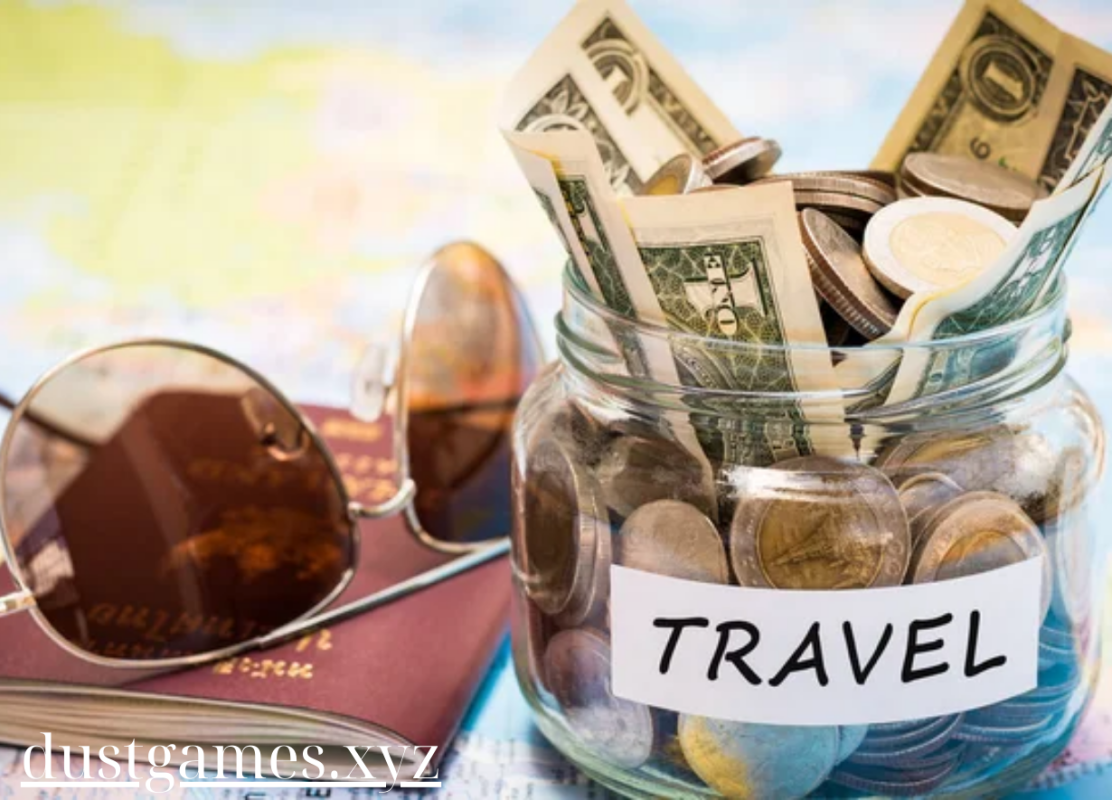Budgeting Tips
Money-Saving Travel Tips: How to Maximize Your Travel Budget
Traveling the world doesn’t always require a hefty budget. With a few strategic money-saving tips, you can explore amazing destinations without overspending. Whether you’re planning a weekend getaway or a long-term adventure, maximizing your travel budget can help you stretch your funds further and experience more. Here’s a guide packed with practical money-saving tips to help you make the most out of every dollar while traveling.
1. Plan and Book in Advance
One of the best ways to save money on travel is to plan ahead. Booking flights, accommodation, and activities in advance can often result in significant savings, as prices tend to increase the closer you get to your travel date. By researching and locking in your bookings early, you can take advantage of lower prices and avoid last-minute surcharges.
Tips for Booking in Advance:
- Use fare comparison tools: Websites like Skyscanner, Google Flights, and Kayak can help you compare flight prices across multiple airlines and find the best deals.
- Monitor fare alerts: Sign up for fare alerts to receive notifications when the price of a flight or accommodation drops.
- Book flexible tickets: If possible, opt for tickets or accommodations with flexible cancellation policies. This ensures you can adjust your plans without incurring extra fees.
2. Be Flexible with Your Travel Dates
Flexibility is key when it comes to saving money on travel. Prices for flights and accommodations can vary dramatically depending on the time of year, day of the week, and even the time of day you choose to travel. Being open to traveling during off-peak seasons or adjusting your departure date by a few days can lead to substantial savings.
Ways to Stay Flexible:
- Travel during off-peak seasons: Avoid peak tourist seasons, which typically come with higher prices for flights, accommodations, and activities. Instead, aim to travel during shoulder seasons (just before or after peak season) when crowds are smaller and prices are lower.
- Be open to mid-week travel: Flights on Tuesdays, Wednesdays, and Thursdays tend to be cheaper than weekend travel. Adjust your schedule to take advantage of these lower fares.
- Use flexible fare calendars: Some booking platforms offer fare calendars that show the cheapest days to travel in a given month, allowing you to choose the most affordable option.
3. Take Advantage of Loyalty Programs and Rewards
If you travel frequently, signing up for loyalty programs and credit cards that offer travel rewards can help you accumulate points or miles, which can be redeemed for future trips. These programs often come with added perks, such as free checked bags, priority boarding, or discounted hotel stays.
How to Maximize Rewards:
- Sign up for airline and hotel loyalty programs: Major airlines and hotel chains offer free membership to their loyalty programs, where you can earn points with each flight or stay. Over time, these points can add up to free flights or nights.
- Use travel reward credit cards: Many travel credit cards offer sign-up bonuses, points for every dollar spent, and perks like travel insurance or lounge access. Make sure to choose a card with no foreign transaction fees if you’re traveling internationally.
- Stack rewards: Some loyalty programs allow you to combine points or use them in conjunction with other discounts, allowing you to save even more on your travels.
4. Opt for Budget Accommodations
Accommodation can be one of the biggest expenses on any trip, but there are plenty of affordable options that don’t compromise comfort or experience. From hostels and budget hotels to vacation rentals and house-sitting opportunities, you can find great places to stay without spending a fortune.
Affordable Accommodation Options:
- Hostels: Modern hostels offer private rooms in addition to traditional dormitory-style accommodations, often at a fraction of the cost of hotels. Websites like Hostelworld can help you find budget-friendly options.
- Vacation rentals: Platforms like Airbnb and Vrbo allow you to rent an apartment or house, often for less than the cost of a hotel. This is especially useful for longer stays or group travel.
- House-sitting: If you’re open to taking care of someone’s home while they’re away, house-sitting can be a free accommodation option. Websites like TrustedHousesitters and HouseCarers connect travelers with homeowners looking for house-sitters.
5. Embrace Public Transportation
Public transportation is not only an affordable way to get around, but it also allows you to experience a destination like a local. Many cities offer extensive public transit networks, including buses, trains, and trams, which can be far cheaper than taxis or car rentals.
Money-Saving Transportation Tips:
- Use public transit passes: Many cities offer day passes or weekly passes for their public transportation systems, which provide unlimited travel for a set price. These passes are often much cheaper than paying for individual rides.
- Walk or bike: In many destinations, walking or renting a bike is an excellent way to explore while saving money on transportation. It’s also a great way to experience the city up close and discover hidden gems.
- Use rideshare services: If public transportation isn’t available or convenient, rideshare services like Uber and Lyft are often cheaper than taxis. Use promo codes or split fares with friends to reduce costs even further.
6. Eat Like a Local
Dining out is an essential part of traveling, but it can also add up quickly. To save money on food without sacrificing the experience, opt for local eateries, street food, and markets instead of high-end restaurants that cater to tourists. You’ll not only save money, but also enjoy more authentic flavors.
How to Save on Food:
- Eat street food: Many destinations are known for their street food culture, where you can enjoy delicious and inexpensive meals for a fraction of the cost of a sit-down restaurant.
- Shop at local markets: Markets are a great place to pick up fresh ingredients, snacks, or even full meals at a lower cost. Plus, shopping at local markets gives you a taste of the region’s culinary culture.
- Cook your own meals: If you’re staying in a vacation rental with a kitchen, consider cooking some of your meals. Not only will this save money, but it also allows you to shop for local ingredients and create your own version of regional dishes.
7. Look for Free or Low-Cost Activities
Many cities and destinations offer free or low-cost attractions and experiences that are just as rewarding as paid activities. From free walking tours and museum days to exploring parks and natural wonders, there’s no shortage of affordable ways to enjoy a new place.
Free or Low-Cost Activities to Try:
- Walking tours: Many cities offer free walking tours led by local guides who can provide insight into the history, culture, and hidden gems of the area. These tours typically operate on a tip-based system, allowing you to pay what you can.
- Free museum days: Many museums and galleries offer free or discounted admission on certain days of the week or month. Research your destination’s museums ahead of time to plan your visit accordingly.
- Explore nature: Take advantage of national parks, nature reserves, and scenic trails for low-cost outdoor adventures like hiking, cycling, or swimming. Many natural attractions are free to access or have minimal entrance fees.
8. Avoid Foreign Transaction Fees
If you’re traveling internationally, foreign transaction fees can add up quickly when using credit cards. These fees, often around 2-3%, are charged by banks for converting currency during purchases. Luckily, there are ways to avoid them and keep more money in your pocket.
How to Avoid Foreign Fees:
- Use a no-fee credit card: Some credit cards don’t charge foreign transaction fees, making them a great choice for international travel. Research and choose a travel-friendly card before your trip.
- Withdraw local currency: Instead of exchanging money at airports or exchange offices (which often have poor exchange rates), use ATMs to withdraw local currency. Check with your bank for any international withdrawal fees beforehand.
- Carry a mix of cash and cards: Having both cash and a credit card gives you flexibility, especially in places where cards aren’t widely accepted.
Conclusion: Travel Smart, Save More
By following these money-saving travel tips, you can maximize your travel budget and enjoy more experiences without overspending. From booking in advance to exploring free activities, traveling smart can help you stretch your budget and create unforgettable memories. Remember, the key to budget travel isn’t just about spending less—it’s about spending wisely.
So, get ready to pack your bags, plan your next adventure, and enjoy the world without the worry of overspending!

